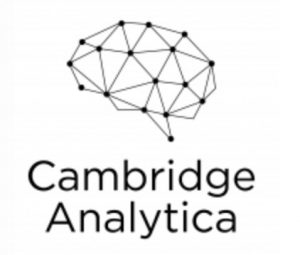SID: 490538203 | Name: Zeyu Zhang(Joy) | CLASS:05 | TUTOR: Venessa Paech
Introduction
The Great Hack (2019) Netflix Documentary Review(Source:https://www.youtube.com/watch?v=789Y7rqxmpI)
The documentary The Great Hack was directed by Karim Amer and Jehane Noujaim in 2019. It mainly explained how a data company named Cambridge Analytica collected data points through Facebook and other social media sites to manipulate the 2016 presidential election in the United States and the Brexit referendum. And other international political movements.
The whole film is based on the investigation of Cambridge Analytica by Professor David Carroll of Parsons and The New School and British investigative journalist Carole Cadwalladr, and it examines this social media platform’s scandal affecting political elections from the perspective of several former employees. What is important is that this film addresses some pressing themes and concerns related to the development of Internet technology, such as user privacy stolen, Internet security and regulation, and the ethical thinking of technology giants. These concerns have announced a fact, “data wars have begun” (Great Hack, 2019).
Data Leakage and User Privacy

Data is the most valuable property on earth” The Great Hack demonstrates how user data on social media platforms is leaked and abused, which arouses social media users’ concerns about privacy and Internet security.Social media such as Facebook monetizes users’ data, and data companies such as Cambridge Analytica use artificial intelligence and data analysis to build models that enable “everyone owns four to five thousand data points.” Every user, as long as there is a trace to follow on the Internet, every time like, browsing, etc. will be monitored. This kind of surveillance is particularly relevant to osn’s perforated data platforms such as Facebook-apps, friends, and advertisers are all observers of user’s behaviors inside and outside the platform (Patil and Shyamasundar, 2019). This means that the theft of information can even obtain their entire network of friends and even private information through a user, resulting in the leakage of private data. What is even more frightening is that these surveillances are like an invisible hand that accurately predicts and manipulates behaviors.
The use of big data for global political manipulation and hatred incitement also seriously threatens Internet security.In 2016, the facebook-Cambridge Analytica incident broke out that the political scandal that Facebook manipulated the US election by selling user information has caused a huge panic about privacy leaks and manipulation by the Internet.However, Facebook’s privacy issues have also been traced in the past.According to the timeline on Facebook privacy issues provided by nbc news(Newcomb,2018), as early as 2007, the Facebook application named beacon tracked users’ purchases, and in 2014, 500,000 users were randomly selected for emotional experiments and so on.At the same time, as mentioned in the movie, the “authoritarian government actually combats hatred and fear politics on Facebook” the spread of fake news, incites racial hatred, leads to genocide, and causes national civil unrest.
Human Rights and Dignity

The series of political scandals represented by the Facebook-Cambridge Analytica incident recorded by The Great Hack is undoubtedly a challenge to human rights and dignity. However, even with so many scandals on Facebook, monetization of data and leakage of user privacy, social media such as Facebook has been accumulating profits and accumulated more than 2 billion users. what is the reason? The convenience provided by social media in real life makes them disregarded for privacy data leakage, or some people simply do not really understand how digital information works. In the film, Professor David uses Cambridge Analytica to retrieve his own data as an excuse to conduct an investigation to obtain more information. The result was a failure. Until now, people did not know exactly how their data was stolen and used. Similar views have also been mentioned in other articles. For example, users’ inferences about their online activities and limited explanations of predictions make them anxious(Patil and Shyamasundar, 2019). Another situation is that people don’t bother to read those terms and conditions when logging in or registering on social media and other web pages. There is no doubt that social media platforms such as Facebook are unethical to steal user information and use it when people don’t know how they operate. As a result, the trust between Facebook and its users was broken, and the scandal brought a reputational loss to Facebook, which was manifested in economically that the share price fell by 6.35% in the period after the Facebook-Cambridge Analytica scandal broke.
Equity and Democratic Politics
Cambridge Analytica Uncovered: Secret filming reveals election tricks (Source:https://www.youtube.com/watch?v=mpbeOCKZFfQ&t=4s )
Data companies such as Cambridge Analytica use data manipulation politics to destroy the integrity of democracy, challenge national sovereignty, and a fair election environment no longer exists. The ability of social media like Facebook to reach millions of voters is beyond doubt (Seadle, 2020). In detail in support of the Trump election, these data are used by Cambridge Analytica to predict the personality orientation of every American adult, thereby establishing a psychological profile for them. These data are mainly used to target the ”persuasable” population. Then, “spend one million dollars a day” on Facebook to place highly targeted digital video content, which acts as a trigger for voters to move from one state to another. In the end, Trump reversed and won the election despite the results of the polls and the optimism of authorities and political circles.Similar manipulations include communicating with voters through social media, using young people’s mentality to advocate freedom to initiate a “doso ”movement that persuades them not to vote, and so on. These young people spontaneously filmed promotional videos on youtube and other online media, which expanded the influence of the movement. As mentioned in the movie, the “doso” movement “makes a 40% change in the number of voters aged 18-35.”Manipulating economically powerful voters to carry out fake news propaganda has also had a great impact on democratic elections. For example, 78% of Britons said they are familiar with the statistics that Brexit will reduce people’s spending by 3.5 pounds a week. (Weissmann, 2016).
Responsibility and Supervision

“Cambridge-analytica” by Uclqpbu CC-BY-SA-4.0
To prevent data from having bad effects, Internet supervision is essential. The film ends with Cambridge Analytica filing for bankruptcy in the United States and the United Kingdom. Cambridge Analytica’s suspension of operations was to destroy evidence and also to restrict the investigation by the authorities. However, these Internet chaos does not mean that it cannot be regulated. It is not only the government, but the Internet supervision at different levels is particularly important. Global policies are becoming more and more important in dealing with communication challenges (Flew, Martin & Suzor, 2019). At the same time, we should strengthen the supervision of the platform itself, because in terms of the impact on public discourse and the life experience of users, the use of functions of the platform to impose its own rules may be more important than legal restrictions (Burgess, Marwick, Poell & Gillespie, 2019). Kerberg admitted to meeting the Republican team when he was questioned by the US Congress, and stated that “my priority is to connect people, build communities, and make the world closer, but it is not enough to prevent these tools from being used to do bad things in person.” This reminds technology giants that they should also take up social responsibilities and respect supervision.
Some Controversial Voice
However,there are also some contradictions in The Great Hack. The basic arguments of the film are controversial due to lack of background and vague data.
- The content of the film is reasonable at the news level, but in fact it is suspected of exaggerating its influence and danger (Seadle, 2020).
- There is no convincing evidence that the Russian government and intelligence agencies used Facebook to interfere with elections across the board.
Conclusion
To conclude,data and technology have unlimited energy,internet has endless power. As the Cambridge Analytica executive mentioned in a video secretly shot by 4 news in UK, “we just put information into the bloodstream to the internet and watch it grow”, it then can penetrate online communities, undermine privacy, and threaten democracy in political process. Therefore, technological innovation and application must be practiced under supervision at all levels to stop “data wars”.
Reference List
Burgess, J., Marwick, A. E., Poell, T., & Gillespie, T. (2019). Governance by and through Platforms. In The sage handbook of social media (pp. 254–278). essay, SAGE Reference.
Flew, T., Martin, F., & Suzor, N. (2019). Internet regulation AS media policy: Rethinking the question of Digital Communication Platform Governance. Journal of Digital Media & Policy, 10(1), 33–50. https://doi.org/10.1386/jdmp.10.1.33_1
Newcomb, A. (2018). A timeline of Facebook’s privacy issues – and its responses. NBCNews.com. Retrieved October 17, 2021, from https://www.nbcnews.com/tech/social-media/timeline-facebook-s-privacy-issues-its-responses-n859651.
Patil, V., & Shyamasundar, R. (2019). Is privacy a myth for Facebook users? Proceedings of the 16th International Joint Conference on e-Business and Telecommunications. https://doi.org/10.5220/0008018805100516
Seadle, M. (2020). The Great Hack (documentary film). Produced and directed by Karim Amer and Jehane Noujaim. Netflix, 2019. 1 hour 54 minutes. Journal of the Association for Information Science and Technology, 71(12), 1507–1511. https://doi.org/10.1002/asi.24333
Weissmann, J. (2016). The campaign lie that’s coming back to haunt Brexit supporters. Slate. Retrieved from https://slate.com/business/2016/06/brexit-supporters-are-starting-to-regretps350-million-nhs-lie.html

This work is licensed under a Creative Commons Attribution 4.0 International License.